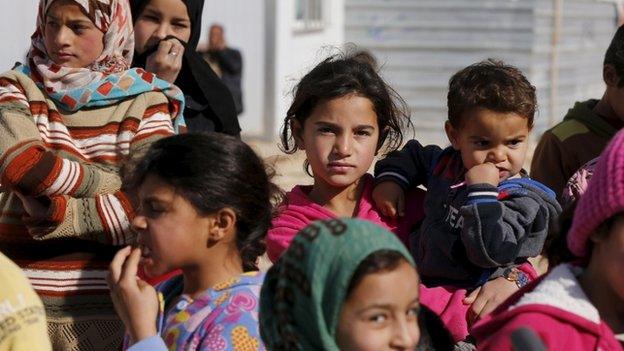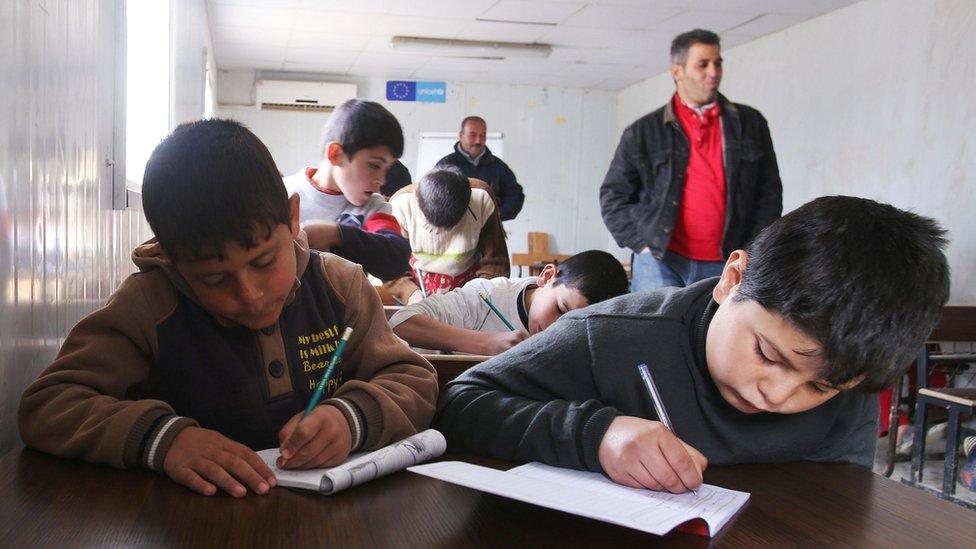Jordan warns of school pressure over Syria refugees
- Published

Jordan has needed an extra 145,000 places in its state schools for refugees
A failure to provide education for refugees escaping the conflict in Syria risks creating a future generation of extremists, the deputy prime minister of Jordan has warned.
Mohammad Thneibat said countries such as Jordan faced a "serious problem" in coping with so many young refugees.
He called for more international financial support to help build schools and train teachers.
"The alternatives are very bad," said Mr Thneibat.
"The international community will pay a high price if we don't stand together to face this serious problem," he told the Global Education and Skills Forum, external.
Mr Thneibat said Jordan already had Palestinian and Iraqi refugees and now had 1.3 million Syrians who had fled across its borders.
"We're trying to do everything to educate these young people for peace, introducing ideas of tolerance and co-existence," Mr Thneibat, who is also Jordan's education minister, told the international conference in Dubai.
But he warned that Syria's neighbours did not have the capacity to deal with such an influx of families without more international assistance.
He said Jordan was training thousands more teachers and building new schools, which would operate in double shifts to try to accommodate 145,000 refugee children in its state school system.
But there were still more children arriving than could be taught, he warned.

Charities have set up emergency schools like this one in the Zaatari refugee camp
There had been financial support from the international community - and more had been pledged, Mr Thneibat said - but almost two-thirds of the cost of each extra refugee pupil was being taken from Jordan's own education budget, he said.
This was in addition to extra costs in health, housing and infrastructure.
Without any access to education, he said such youngsters could become part of another cycle of conflict.
"If we leave these students, we believe they could become extremists."
Tom Fletcher, UK ambassador to Lebanon until last year, said the numbers of refugees were now "staggering".
Mr Fletcher is now working for a coalition trying to get business support to tackle the refugee crisis.
He said conventional humanitarian crisis approaches did not work on this scale, and that other groups, including business, should contribute.
George Papendreou, former prime minister of Greece, told the conference that he had been a refugee when his family was in political exile.
He said that European countries should try to see refugees as potential benefits to their societies rather than respond with "fear and ignorance".